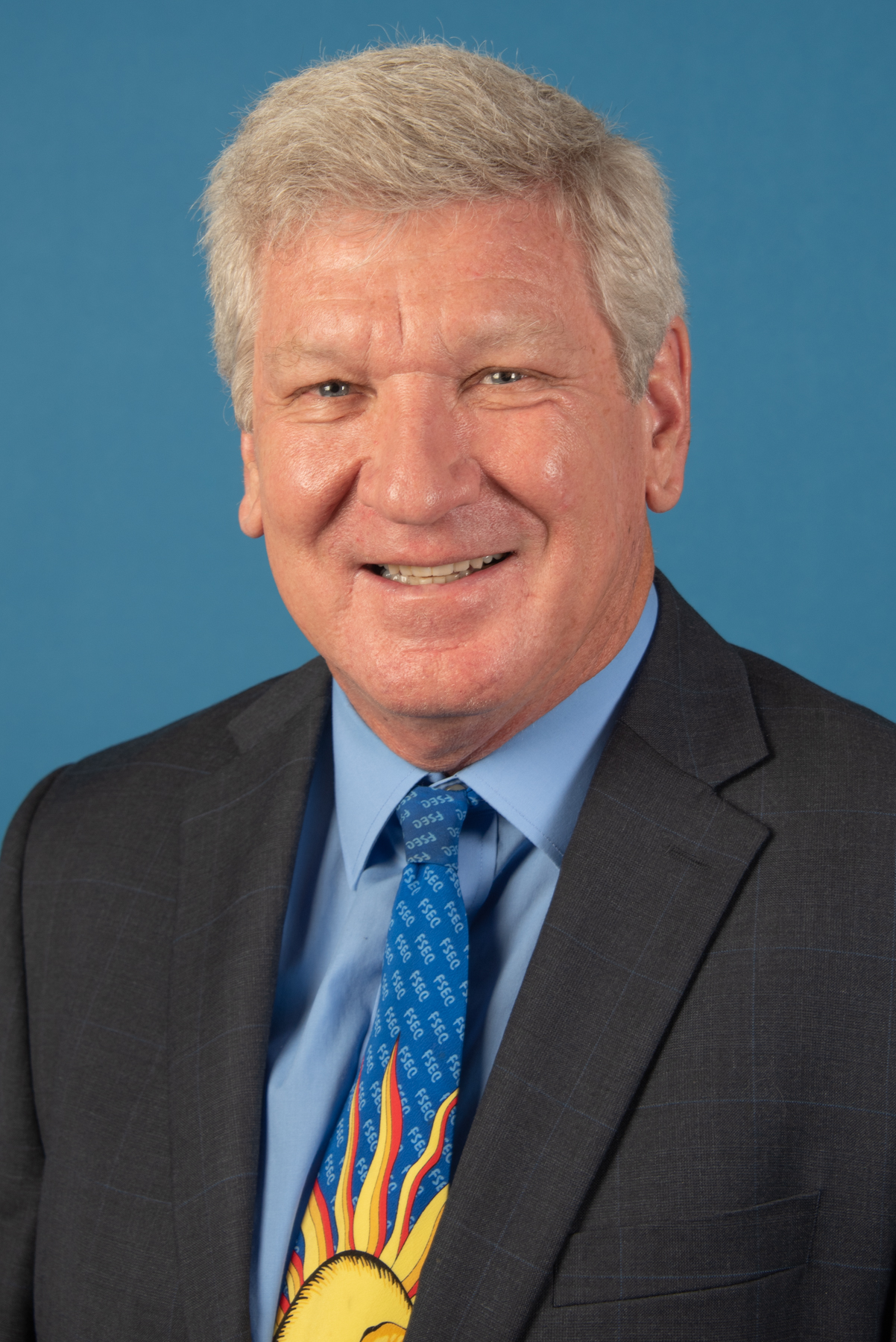James M. Fenton is the director of the University of Central Florida’s FSEC Energy Research Center where he leads a staff of more than 50 in the research, development, and education of energy technologies that enhance Florida’s and the U.S.’s economy and environment. FSEC has six major program areas – solar energy, high performance buildings, alternative transportation, advanced energy systems, STEM education and workforce training, and energy policy research. The research focuses on:
- Photovoltaic (PV) systems (rooftop, land-based and floating), performance, durability, testing and certification; PV cell/module manufacturing; and distributed energy resources;
- Building science, indoor air quality, smart energy efficient devices and systems, load management, advanced weatherization, affordable housing applications, and deep retrofits;
- Electric vehicles, vehicle-to-building, alternative fuels, autonomous systems, and infrastructure;
- Hydrogen, fuel cell technology, and energy storage;
- Workforce training, K-12 education, curricula development, and public outreach;
- Energy policy analysis, codes and standards development, and administration.
Professor Fenton has more than 40 years of experience in electrochemical engineering and education topics including redox flow batteries, PEM fuel cells, fuel processing, high temperature corrosion, oxidizing agent generation, and metal recycling. Prior to joining FSEC in 2005, he spent 20 years as a chemical engineering professor at the University of Connecticut. He received his PhD in Chemical Engineering from the University of Illinois in 1984, and his BS from the University of California, Los Angeles in 1979.
A member of The Electrochemical Society (ECS) since 1980, Professor Fenton attended his first meeting as a student in 1982. He served as Secretary of the Electrochemical Society (2017-2020) and has served the Society in many capacities, including all offices of the ECS Boston Section (now the ECS New England Section) and the ECS Industrial Electrolysis and Electrochemical Engineering Division. His service includes membership in many Society committees: Council of Local Sections, Individual Membership, Finance, New Technology, Publication, Education, Ethical Standards, Technical Affairs, and Ways and Means. Prof. Fenton chaired the ECS student poster sessions for four years, and chaired the Polymer Electrolyte Fuel Cells Student Poster Session Competition since its inception in 2011. He received the honor of Fellow of The Electrochemical Society in 2007 and ECS’s Energy Technology Division Research Award in 2014 for his work on proton exchange membrane fuel cells.







